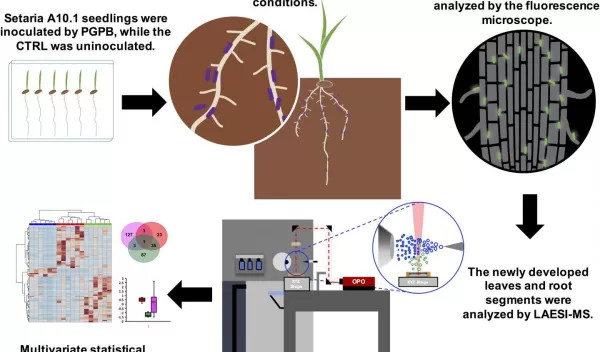
Reducing reliance on nitrogen fertilizers via biological nitrogen fixation
Crop yields have increased substantially over past decades, along with increasing use of nitrogen fertilizer. While nitrogen fertilizer benefits crop growth, it has negative effects on the environment and climate. Scientists are seeking ways to develop sustainable practices that maintain high crop yields with reduced inputs of fertilizers.
"A more sustainable way to provide nitrogen to crops would be through the use of biological nitrogen fixation, a practice well-developed for leguminous crops," says plant pathologist Gary Stacey of the University of Missouri. "A variety of nitrogen-fixing bacteria are common in the rhizosphere of most plants. However, such plant growth promoting bacteria (PGPB) have seen only limited use as inoculants in agriculture."
Stacey and his colleagues believe that the limited use is due to a poor understanding of the benefits.
To reduce variability in crops' responses to PGPB, the scientists conducted research to gain a greater understanding of the metabolic response of the plant host. The results of the National Science Foundation-funded research were recently published in the journal Molecular Plant-Microbe Interactions.
"One challenge with our research is that, while PGPB can colonize roots to high levels, the sites of colonization may be highly localized," said Stacey. Therefore, he and colleagues conducted detailed analyses at the colonization sites.
Their analyses show that bacterial colonization results in significant shifts in plant metabolism. Some metabolites were more abundant in inoculated plants, while others, including metabolites indicative of nitrogen, were reduced in roots inoculated with a bacterial strain unable to fix nitrogen.
"These new results are an important step forward in understanding how PGPB impacts plant growth and health," says R. Kelly Dawe, a program director in NSF's Division of Integrative Organismal Systems.
